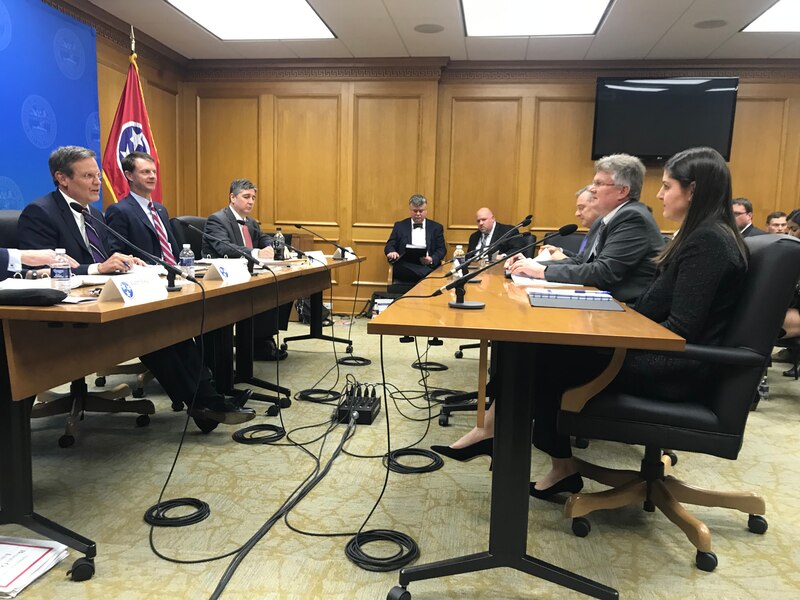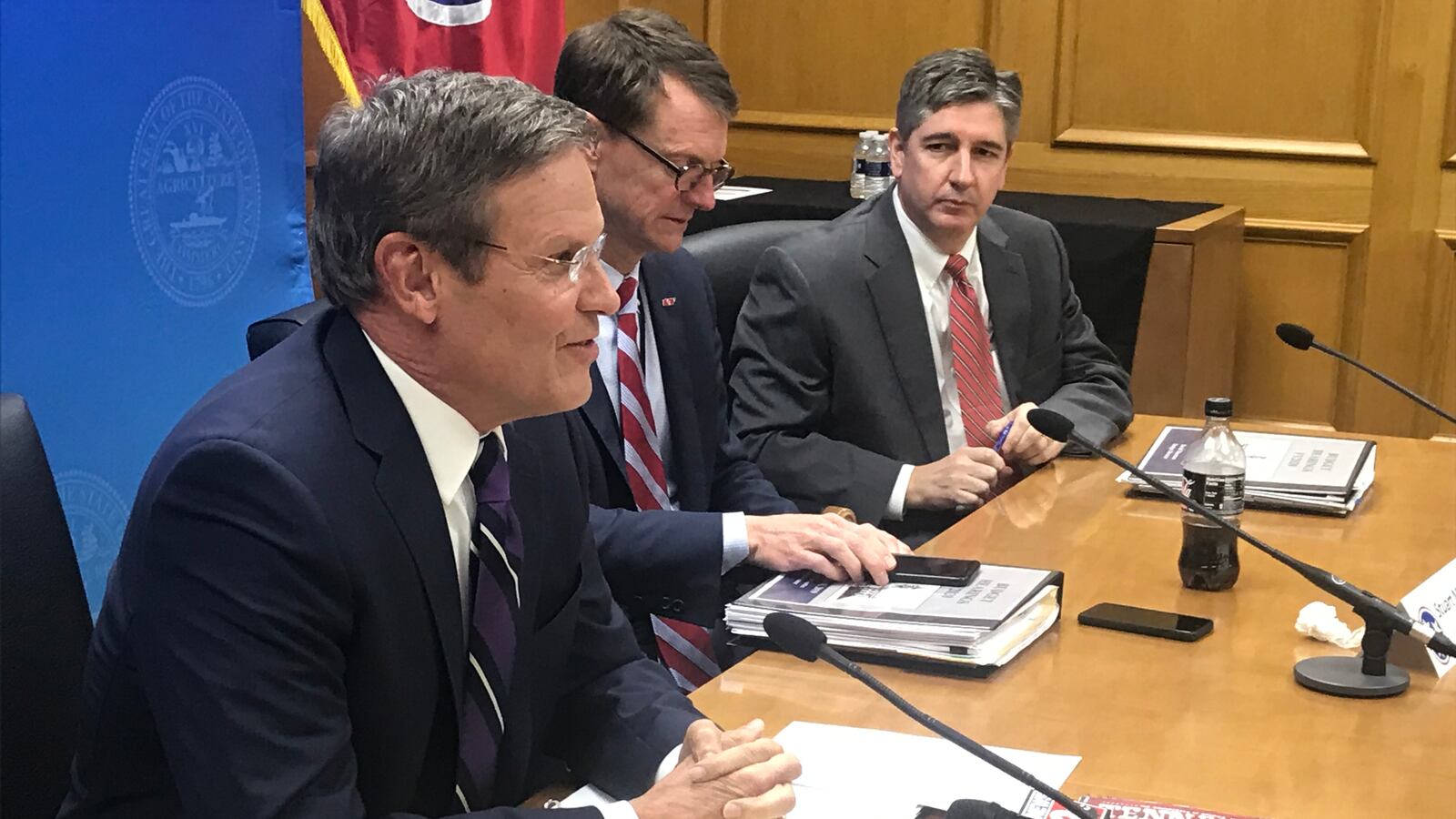Gov. Bill Lee said Monday that he wants to increase teacher pay and invest more money in programs for career, technical, and agricultural education, but he’s still figuring out what’s possible as he shapes his first proposed budget.
The Republican governor, who started his second week in office, also is looking closely at school security needs to determine whether to make a second straight year of extra investments in student safety.
“We have to keep our kids safe,” he told reporters after quizzing education department staff about how the state distributed $25 million in one-time funding for school safety needs last year under Gov. Bill Haslam.
“I’m interested in how it is that we do an even better job of that,” he added.
Funding schools is one of the biggest responsibilities of state government, annually costing Tennessee $6.4 billion that mostly is passed on to districts.
Lee has identified K-12 education as one of five priorities for his estimated $37.8 billion spending proposal for the fiscal year beginning July 1. The others are criminal justice, mental health, health care, and rural economic development.
“We’re in a really good fiscal position,” he told reporters as he completed his second day of budget hearings.
But even though he talked on the campaign trail about the need for more competitive teacher salaries, he declined Monday to make commitments on such big-ticket items.
“We will obviously invest in the classroom and that includes teachers,” he said. “It’s too early to have specifics around that right now.”
Under Haslam, the state increased allocations for teacher pay the last three years, but the money hasn’t always reached their paychecks. That’s because districts have discretion on how to invest state funding for instructional needs if they already pay their teachers the state’s average weighted annual salary of $45,038.
Lee said his budget will prioritize investments in career, technical, vocational, and agricultural education, but did not say how much that will cost.
“We are looking at specific proposals and specific funding,” said the governor, whose family-owned company in Williamson County runs its own employee training program for HVAC, electrical, plumbing, and other home services.
The education department is requesting an additional $64 million, more than 70 percent of which is based on projected growth of Tennessee’s student population. The state anticipates an average daily attendance next school year of 972,852 students at an average cost to the state of $4,940 per pupil.

Interim Education Commissioner Lyle Ailshie wants $6 million to maintain a 2-year-old fund that helps charter schools pay for building needs.
“This has been a very popular program,” he said of grants that went to 66 charter schools last year, adding: “I think we need to take a step back and look at more of a long-term solution.”
Ailshie also asked for $8 million to provide early intervention services for the state’s youngest children who are developmentally delayed or at risk; and $5 million to help drive improvement in “priority schools,” those in the state’s bottom 5 percent.
The governor is expected to complete his spending proposal by early February and is scheduled to deliver his first State of the State address on March 4. His new education commissioner, Penny Schwinn, will start her new job on Feb. 4.

